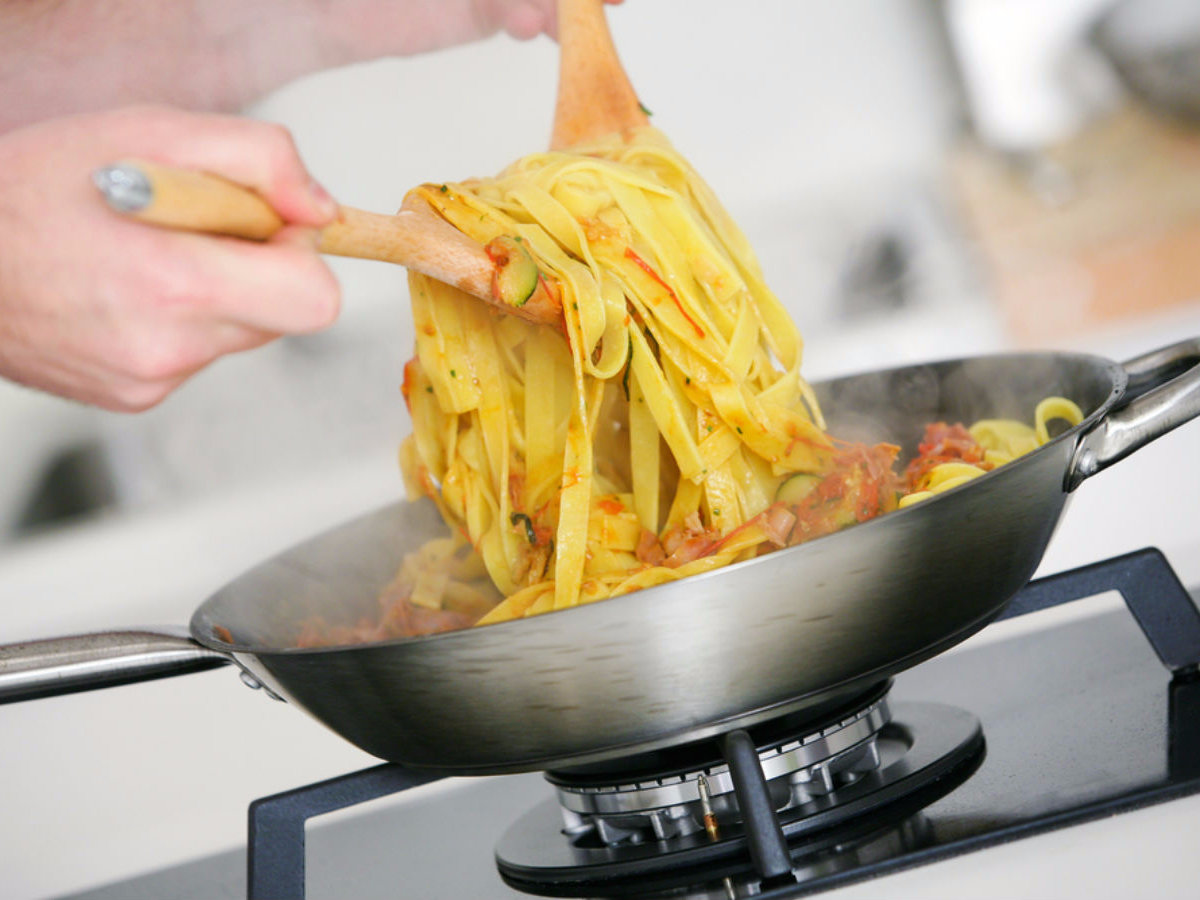- We spoke with a panel of professional Italian and Italian-American chefs to learn the common mistakes amateur home cooks make when cooking pasta.
- Under-salting the pasta water is a big no-no: “It should be well-seasoned, like a soup.”
- Cooking the macaroni for the exact amount of time it specifies on the box won’t get you al dente pasta.
Pasta is probably one of the simplest dishes you can make. It’s so easy, a broke college student can do it, right?
As it turns out, there’s a lot more nuance to whipping up a perfectly al dente plate of pasta than just throwing a box of noodles into boiling water and hoping for the best.
Insider spoke with a panel of Italian and Italian-American chefs who told us the common mistakes amateur home chefs make when cooking pasta.
From not salting the pasta water enough to throwing out the pasta water without mixing it into your sauce, keep scrolling to learn about the mistakes you may be making with your pasta recipes.
Using the wrong brand of dried pasta
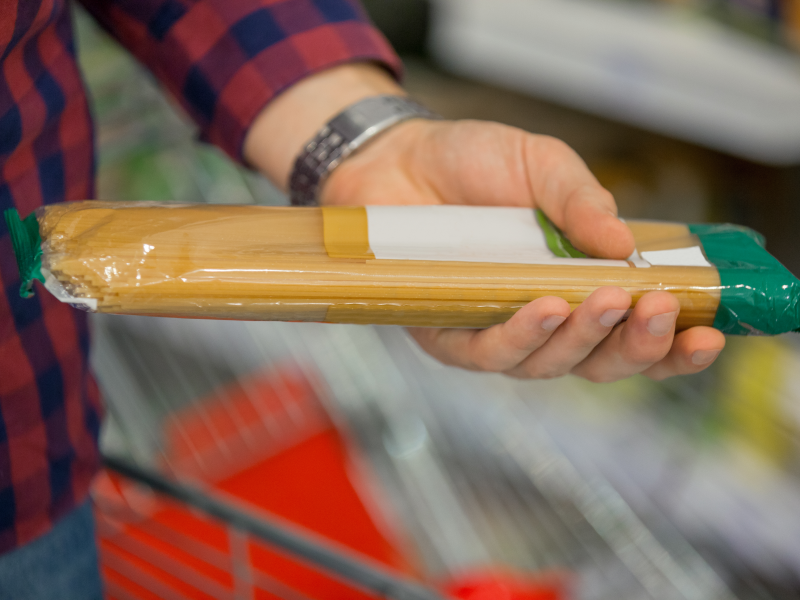
"Don't cheap out on dried pasta!" chef Josh Laurano, who used to work at Mario Batali's La Sirena, told Insider.
"A number of domestic pasta producers take shortcuts that make their product less expensive and often inferior, either by using flours that have additives or by speeding up the drying process. All of these lead to a noodle that does not maintain that al dente texture that we all love."
Not sure where to start? Check out Insider's guide to the best boxed pastas.
Not waiting until your water is boiling
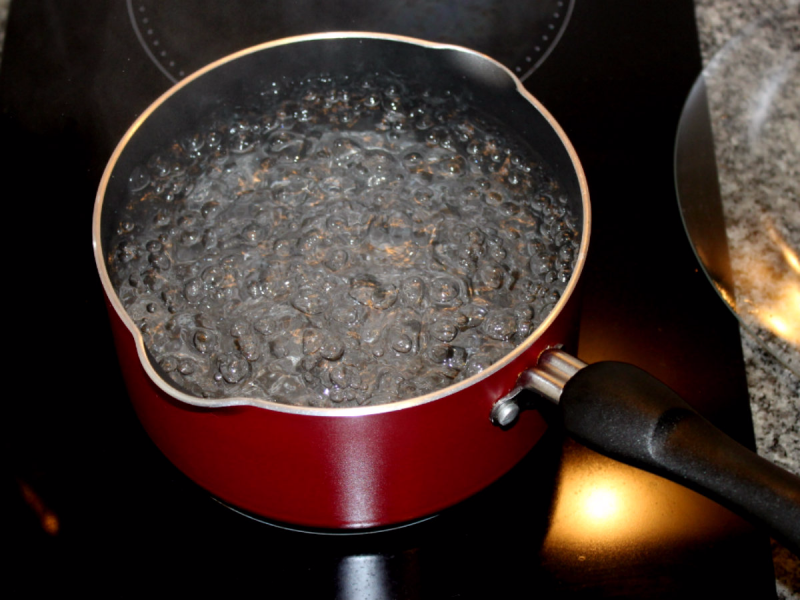
Are you adding the pasta to your pot of water too early? Don't just drop the box of penne in when the surface of the water is just starting to bubble up.
Chef Salvatore Marcello, a Naples native and executive chef of MAMO in New York, said that the water should be at a "roiling boil" before you even think about adding your pasta.
Not salting the water enough
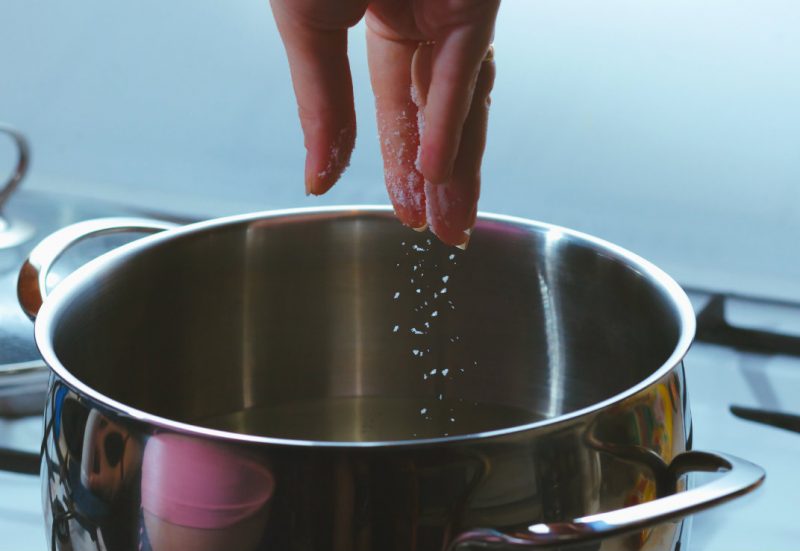
"Well-seasoned pasta water should taste like a well-seasoned soup," Chef Nate Whiting, executive chef of Juliet in Charleston, South Carolina, said. He suggested adding 10 grams of salt for every 1,000 grams of water.
Chef Kenny Giambalvo, a former executive chef at Pazzo Ristorante in Portland, Oregon, agreed, and told Insider that "not adding enough salt to your pasta water will make the pasta taste flat."
Not using enough water to boil the pasta
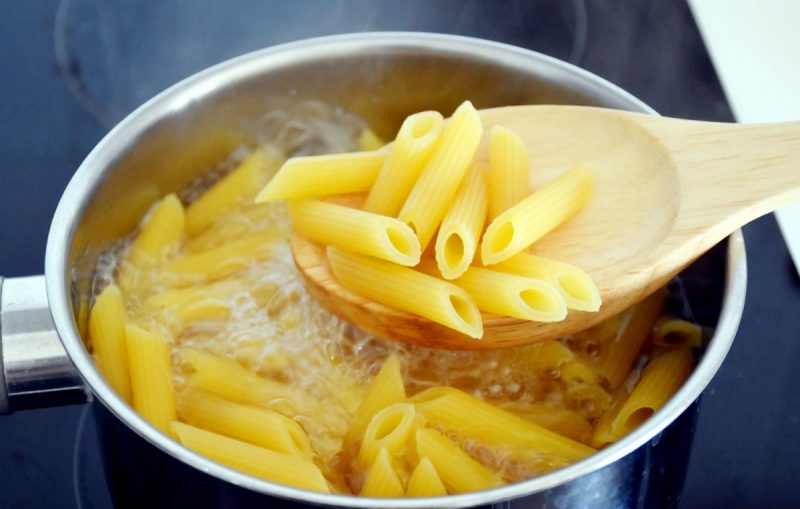
If you've been filling your pot with just barely enough water to cover the uncooked noodles, think again.
"Pasta needs room to swim!" Chef Nate Whiting said. "Cook your pasta in lots of salted, boiling water."
Rinsing your pasta after it cooks

"One of the most commonly asked questions is 'Do I rinse the pasta after I remove it from the water?'" Carmine DiGiovanni, executive chef of Aunt Jake's in New York City, said. "Huge mistake to rinse it. That starch is going to add a smooth, velvety richness to your sauce."
Throwing out the pasta water
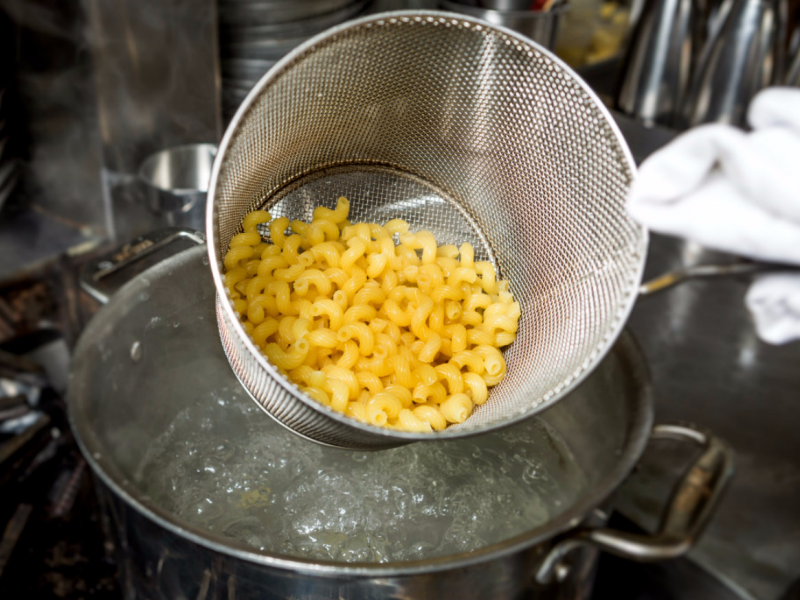
You haven't rinsed the pasta, right? Well, be sure to set aside that pot of leftover boiled water to add to your sauce later.
"Use the pasta cooking water in your sauce," chef Lidia Bastianich, TV food personality and owner of Felidia restaurant in New York City, said. "It acts as a medium to extract and blend the seasonings and sauce ingredients."
Chef Nate Whiting added that the pasta water can help "emulsify the pasta and the sauce together."
Using the wrong shape of pasta for your sauce
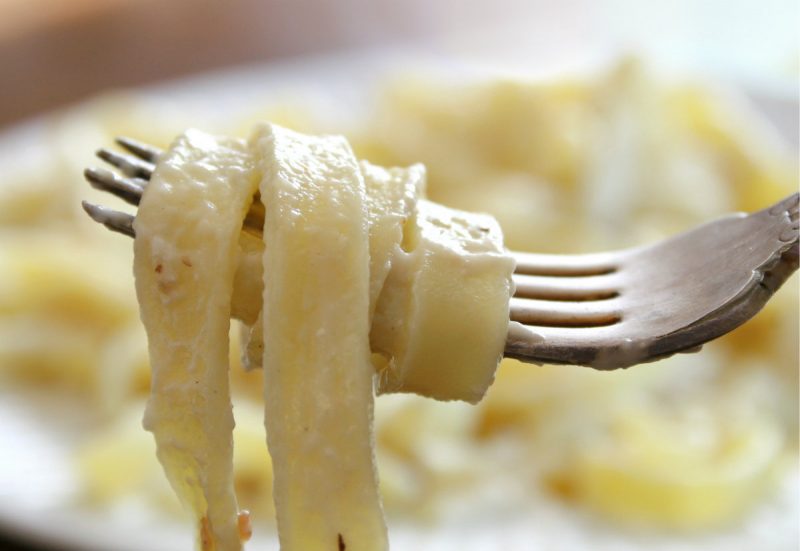
Did you know that choosing the right shape of pasta is about much more than just aesthetics?
"The flatter and longer pasta shapes combine well with olive oil and cream sauces, while sturdier shapes, such as orecchiette, work well with chunkier and more assertively flavored sauces," chef Lidia Bastianich said. "Tomato and simple cream and butter sauces are universal and will go well with basically all pasta."
Overcooking the pasta "elementary school cafeteria"-style
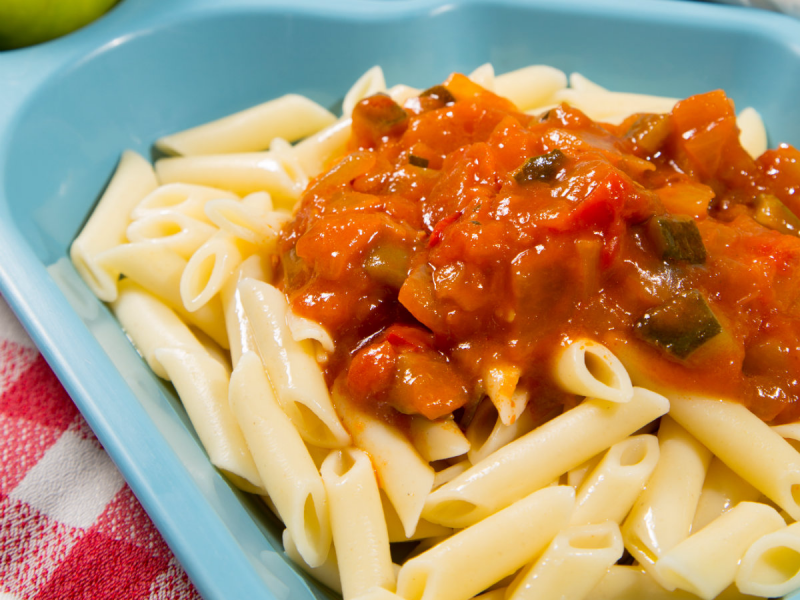
The most important part of making any pasta dish? Making sure it's perfectly "al dente" (that means "to the tooth" in Italian).
"The biggest mistake anyone can make is serving up what I call 'elementary school' pasta," celebrity chef and cookbook author Devin Alexander said. "Some people have gotten accustomed to eating overcooked pasta because organizations, schools, etc. sometimes overcook it to create more volume (it "blows up" with more cooking). But it tastes so much better when it has a slight bite to it."
Chef Daniela del Balzo, owner of Daniela's Cooking School in Rome, says to "Turn off the water two to three minutes before the suggested time on the box, so it does not get overcooked."
Not cooking the pasta with the sauce
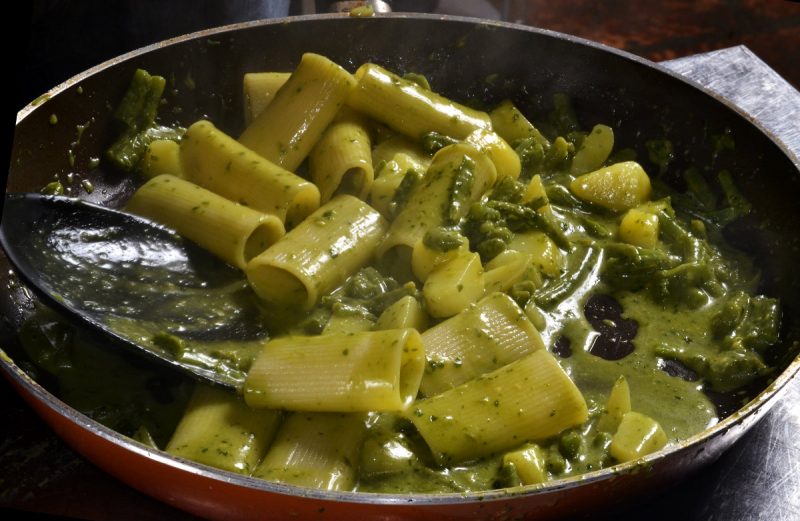
Do you have a habit of saucing your pasta after it's finished cooking? That's a mistake.
"Your pasta should be drained when it's al dente so that you can finish cooking it in the sauce without it overcooking," chef Salvatore Marcello said.
Then, simmer your pasta in sauce for a good 30 seconds before removing from the flame.
"Hot pasta has pores, just like our skin. When it is hot, they are open; when cold they are closed," chef Carmine DiGiovanni said.
- Read more:
- 7 chefs revealed their favorite jarred pasta sauces
- I put Olive Garden's Never Ending Pasta Pass to the test to see if it's really never-ending. Here's what I found.
- I made spaghetti with meat sauce using Impossible Foods 'beef' to see if it tasted like the real thing - here's the verdict
- I tried Olive Garden's new 'pasta pancakes,' but the new lasagna menu item looked nothing like its ads
